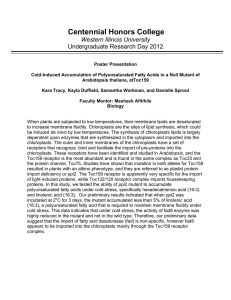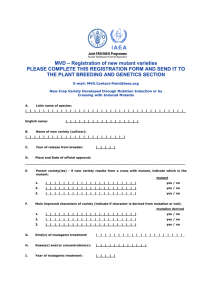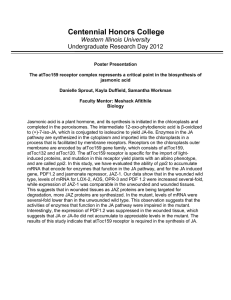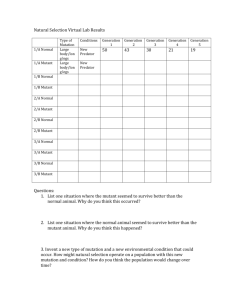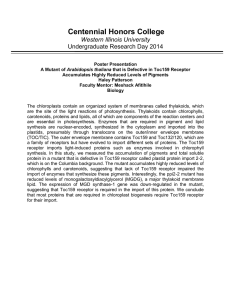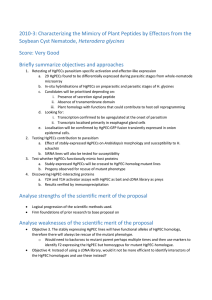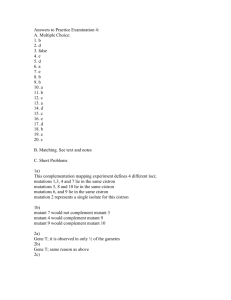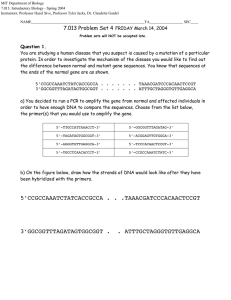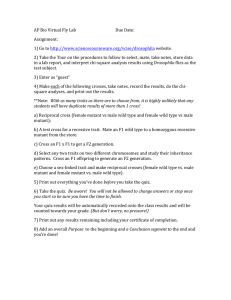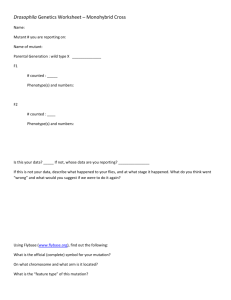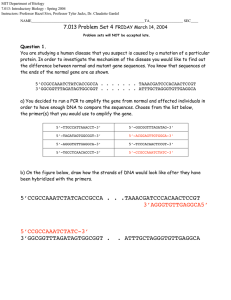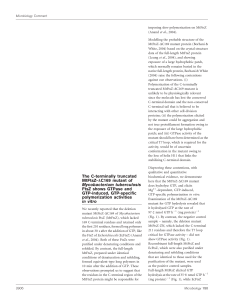Centennial Honors College Western Illinois University Undergraduate Research Day 2014
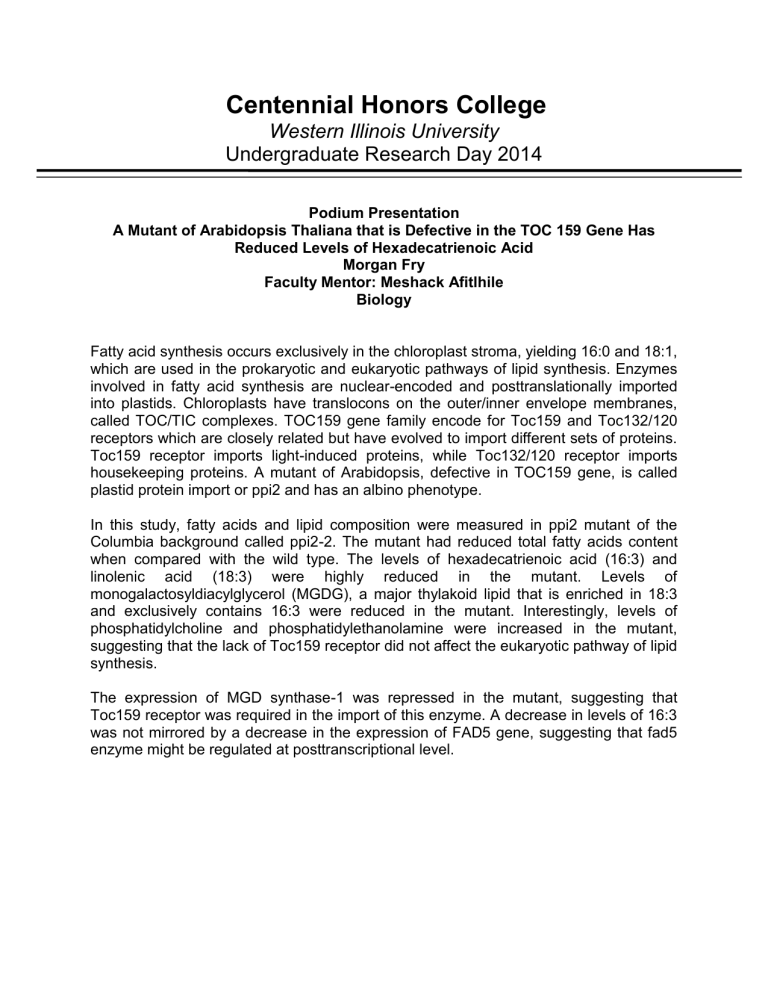
Centennial Honors College
Western Illinois University
Undergraduate Research Day 2014
Podium Presentation
A Mutant of Arabidopsis Thaliana that is Defective in the TOC 159 Gene Has
Reduced Levels of Hexadecatrienoic Acid
Morgan Fry
Faculty Mentor: Meshack Afitlhile
Biology
Fatty acid synthesis occurs exclusively in the chloroplast stroma, yielding 16:0 and 18:1, which are used in the prokaryotic and eukaryotic pathways of lipid synthesis. Enzymes involved in fatty acid synthesis are nuclear-encoded and posttranslationally imported into plastids. Chloroplasts have translocons on the outer/inner envelope membranes, called TOC/TIC complexes. TOC159 gene family encode for Toc159 and Toc132/120 receptors which are closely related but have evolved to import different sets of proteins.
Toc159 receptor imports light-induced proteins, while Toc132/120 receptor imports housekeeping proteins. A mutant of Arabidopsis, defective in TOC159 gene, is called plastid protein import or ppi2 and has an albino phenotype.
In this study, fatty acids and lipid composition were measured in ppi2 mutant of the
Columbia background called ppi2-2. The mutant had reduced total fatty acids content when compared with the wild type. The levels of hexadecatrienoic acid (16:3) and linolenic acid (18:3) were highly reduced in the mutant. Levels of monogalactosyldiacylglycerol (MGDG), a major thylakoid lipid that is enriched in 18:3 and exclusively contains 16:3 were reduced in the mutant. Interestingly, levels of phosphatidylcholine and phosphatidylethanolamine were increased in the mutant, suggesting that the lack of Toc159 receptor did not affect the eukaryotic pathway of lipid synthesis.
The expression of MGD synthase-1 was repressed in the mutant, suggesting that
Toc159 receptor was required in the import of this enzyme. A decrease in levels of 16:3 was not mirrored by a decrease in the expression of FAD5 gene, suggesting that fad5 enzyme might be regulated at posttranscriptional level.
